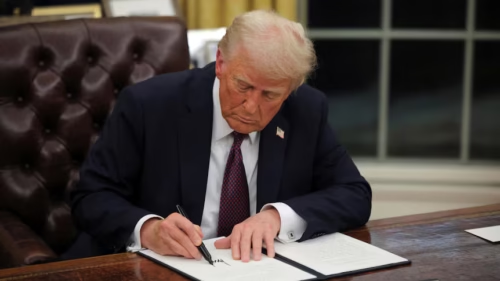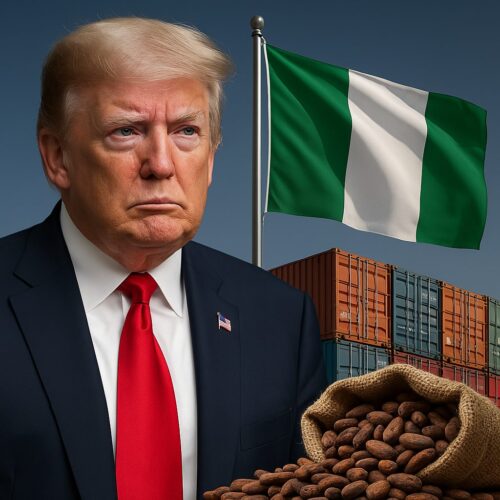
President Donald Trump’s proposed 14% tariff on Nigerian exports including cocoa, fertilizers, and ginger could introduce unexpected disruptions to Nigeria’s banking sector. Although the policy is currently suspended for a 90-day period, the potential implementation could negatively impact trade finance, a critical revenue stream for Nigerian banks.
Trade finance operations—such as issuing credit lines, guarantees, and insurance—are a core business for leading Nigerian financial institutions including First Bank, Access Bank, and the Nigerian Export-Import Bank (NEXIM). According to the African Development Bank (AfDB), nearly 15% of total bank earnings in the country stem from trade-related services.
Previously, under the African Growth and Opportunity Act (AGOA), Nigerian exporters benefited from duty-free access to the US for non-oil goods like agricultural and manufactured products. With the expiry of this privilege, both exporters and their financial backers now face exposure to new cost burdens and market volatility. A decline in export volume due to reduced US demand may squeeze banks’ trade finance margins and foreign exchange inflows.
“Trade finance is a key income source for banks, but it’s the FX inflows that matter more than interest from loans,” said a former Central Bank of Nigeria (CBN) executive who requested anonymity. He explained that banks favor export-linked activities because they bring in foreign exchange through domiciliary accounts, an essential source for meeting FX demand in the domestic market.
Nigeria’s export profile to the US is dominated by crude oil and natural gas. However, the country also ships significant volumes of non-oil goods such as nitrogenous fertilizers, cocoa beans, ginger, oil seeds, and oleaginous fruits. According to the National Bureau of Statistics (NBS), non-oil exports surged from ₦86.4 billion ($54.9 million) in 2023 to ₦309.1 billion ($196.6 million) in 2024.
If the tariff takes effect, US importers may delay or cancel orders, which would reduce trade volumes and negatively affect banks offering trade-related services. This drop could lead to fewer letters of credit, tighter dollar liquidity, and lower trade-generated revenue for financial institutions.
A reduced flow of dollars would weaken the naira, which had remained relatively stable from December 2024 until recent weeks. The currency fell to ₦1,639.3 per US dollar on April 9, 2025, from ₦1,531.6 just a week earlier. In response, the CBN injected $197.71 million into the foreign exchange market to stabilize the naira.
Tajudeen Ibrahim, Director of Research and Strategy at Chapel Hill Denham, noted that the tariff scenario presents both a risk and an opportunity. While the immediate concern is reduced US demand, he emphasized the strategic importance of strengthening intra-African trade. “Africa’s future lies in regional integration. By expanding intra-African trade, we can reduce reliance on external markets and enhance economic resilience,” he said.
As Nigerian banks prepare for potential disruptions to their trade finance operations, the situation underscores the need to diversify export markets and strengthen regional trade frameworks. By doing so, financial institutions can safeguard earnings and create a more stable, self-reliant trade ecosystem.



